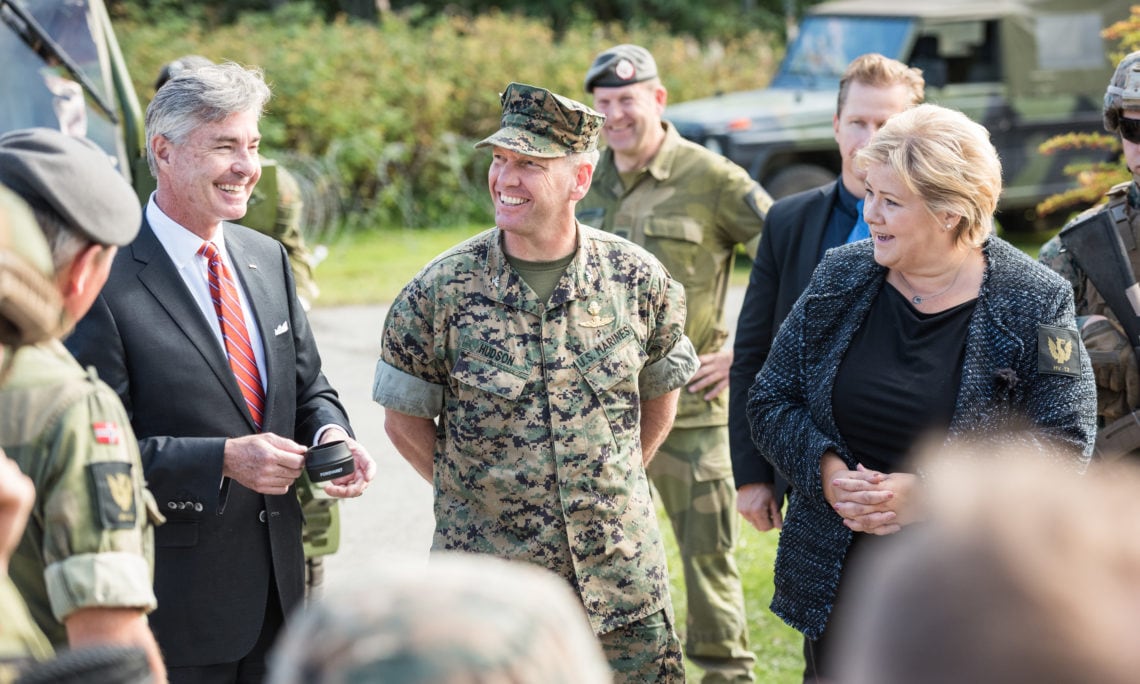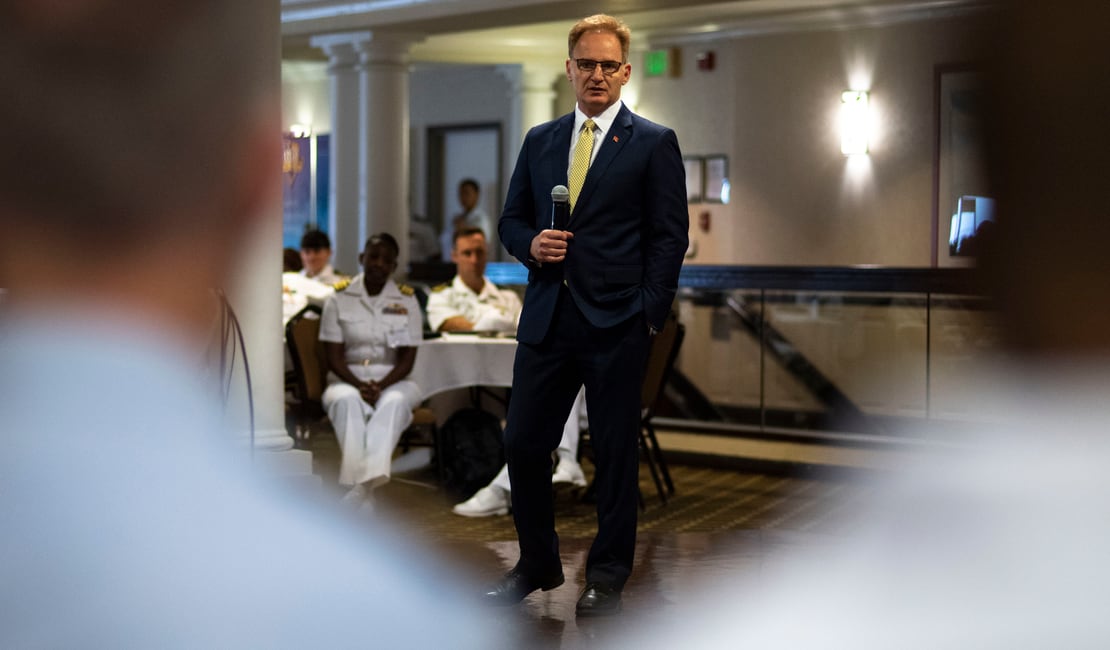President Donald Trump’s latest pick to lead the Navy vowed Thursday to improve public trust in leadership of the service after years of controversies have led to a “tarnished” culture within the ranks.
The comments from Kenneth Braithwaite, the current U.S. ambassador to Norway whose nomination to be the next Navy secretary has been stalled since last fall, come one month after the resignation of Thomas Moldy from the top service civilian role, amid outcry over his handling of an outbreak of coronavirus aboard the aircraft carrier Theodore Roosevelt.
That included Moldy’s decision to fire the ship’s commanding officer after complaints about slow leadership response was made public, and a caustic speech to crew members for applauding the dismissed captain.
RELATED

Braithwaite referenced the incident during a confirmation hearing before the Senate Armed Services Committee, along with a pair of deadly Navy ship collisions in 2017, the still-ongoing “Fat Leonard” contracting corruption scandal, and other unspecified “judicial missteps” by Navy leaders.
“It saddens me to say the Department of the Navy is in troubled waters due to many factors, primarily the failings of leadership,” he said. “[The controversies] are all indicative of a breakdown in the trust of those leading the service.”
In written testimony accompanying his public remarks, Braithwaite vowed that his top priority, if confirmed, will be addressing “an unfortunate lack of full faith and confidence in” senior department officials.
Lawmakers noted that will hinge on the Navy’s continued response to the pandemic threat.
“The recent incident with the USS Theodore Roosevelt serves as a reminder of the perils that our service members endure daily, whether deployed to combat zones or conducting routine operations,” said committee ranking member Jack Reed, D-R.I. “It also should have been a wakeup call about the Navy’s actions with respect to COVID-19.”
One week ago, Navy officials reported 1,102 active cases of coronavirus among the Roosevelt’s crew, including one death. Service officials have since stopped publicly reporting those cases.
More than 2,000 sailors have contracted coronavirus, according to Defense Department data. That represents more than 40 percent of the military’s virus cases.
Braithwaite deferred on several specifics of the service’s coronavirus response, but vowed that “I will direct every resource possible to secure both the safety and security of our force to ensure readiness is not affected.”
After questioning from the panel, Braithwaite also hinted he will not intervene in personnel decisions “distant down the chain,” saying he wants to better establish respect and trust in leaders on all levels.
RELATED

Modly’s predecessor, Navy Secretary Richard Spencer, was forced out of office amid a fight with the White House and senior defense leaders over the handling of a legal case against a Navy SEAL accused of war crimes. Both sides accused the other of unnecessary high-level meddling in personnel issues.
Braithwaite’s questioning — held along with confirmation proceedings for Under Secretary of Defense for Policy nominee James Anderson and Air Force Chief of Staff nominee Gen. Charles Brown — took place in a sparse, lightly attended hearing on Capitol Hill due to the continued coronavirus outbreak.
Senate officials limited public and press attendance at the event in an effort to mitigate the risk of spreading the illness and seated the nominees far across the room from the attending senators. Committee officials said they hope to hold similar events in the future, using streaming technology to keep the proceedings open despite the diminished in-person presence.
Leo covers Congress, Veterans Affairs and the White House for Military Times. He has covered Washington, D.C. since 2004, focusing on military personnel and veterans policies. His work has earned numerous honors, including a 2009 Polk award, a 2010 National Headliner Award, the IAVA Leadership in Journalism award and the VFW News Media award.





